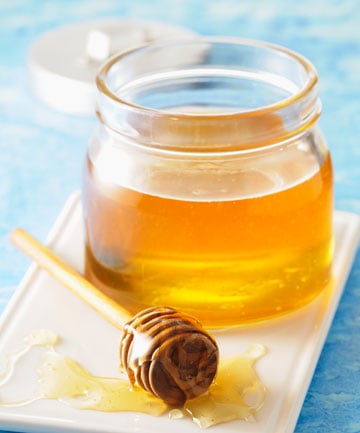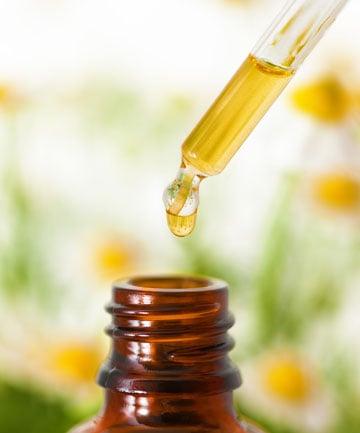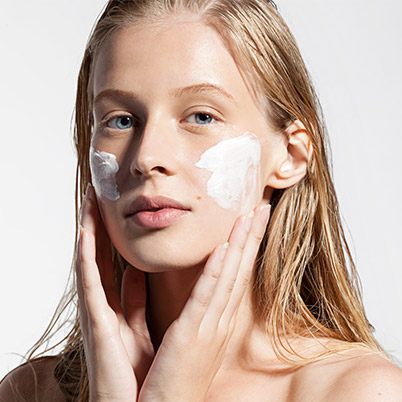Truth: They can have long-term side effects.
Being protective about your health is advice you're given time and again but, like procrastinating deadlines until the ninth hour, you don't always take words of wisdom as you should. Spring allergies might be cumbersome for your day-to-day for a few months, but if you let them go without treating them, you could experience long-term side effects, according to allergist and chief medical officer of EHE, Dr. Tania Elliott. "Untreated allergic rhinitis can lead to the development of asthma, chronic sinus issues, sleep disturbances, obstructive sleep apnea and can cause a decrease in cognitive ability and productivity," she explains. "Be aware that in addition to the typical itchy eyes and runny nose, allergies can cause a foggy forgetful feeling, headaches, facial pain and pressure, fatigue, and sleepiness. If you experience this every spring, allergies may be the cause."
Image via Getty
Being protective about your health is advice you're given time and again but, like procrastinating deadlines until the ninth hour, you don't always take words of wisdom as you should. Spring allergies might be cumbersome for your day-to-day for a few months, but if you let them go without treating them, you could experience long-term side effects, according to allergist and chief medical officer of EHE, Dr. Tania Elliott. "Untreated allergic rhinitis can lead to the development of asthma, chronic sinus issues, sleep disturbances, obstructive sleep apnea and can cause a decrease in cognitive ability and productivity," she explains. "Be aware that in addition to the typical itchy eyes and runny nose, allergies can cause a foggy forgetful feeling, headaches, facial pain and pressure, fatigue, and sleepiness. If you experience this every spring, allergies may be the cause."
Image via Getty
Truth: You should take allergy medicine.
Ever have your grandmother shove a lick of honey in your direction in the middle of a sneeze-fest? Though her intentions were, ahem, sweet, Daniel Slaughter, MD, of Sinus & Snoring Specialists says it's not a solid way to rid of your ailments. "People have the idea that raw honey contains all of the spring pollens and therefore a dose a day orally will teach the body to make blocking antibodies," he explains. The advice is actually contrary, he notes, since studies have shown this is not effective because the honey mainly contains flower pollen which isn't allergenic. Instead? Opt for an over-the-counter allergy medicine that has potent ingredients that fight your symptoms.
Image via Getty
Ever have your grandmother shove a lick of honey in your direction in the middle of a sneeze-fest? Though her intentions were, ahem, sweet, Daniel Slaughter, MD, of Sinus & Snoring Specialists says it's not a solid way to rid of your ailments. "People have the idea that raw honey contains all of the spring pollens and therefore a dose a day orally will teach the body to make blocking antibodies," he explains. The advice is actually contrary, he notes, since studies have shown this is not effective because the honey mainly contains flower pollen which isn't allergenic. Instead? Opt for an over-the-counter allergy medicine that has potent ingredients that fight your symptoms.
Image via Getty
Fact: They sure do!
Much like any great medical debate, you might be wary to trust certain medicines and prescriptions when you — and your family — have been using the same ol' go-to for generations. Slaughter says many folks are under the impression that allergy drops aren't as effective as shots, but this less-invasive approach actually packs the same punch. "Well-formulated allergy drops made by the doctor's office are the best way to block your spring allergies because they are made based on skin testing. When taken daily under the tongue, a patient's allergies are typically controlled within six months," he explains.
Image via Getty
Much like any great medical debate, you might be wary to trust certain medicines and prescriptions when you — and your family — have been using the same ol' go-to for generations. Slaughter says many folks are under the impression that allergy drops aren't as effective as shots, but this less-invasive approach actually packs the same punch. "Well-formulated allergy drops made by the doctor's office are the best way to block your spring allergies because they are made based on skin testing. When taken daily under the tongue, a patient's allergies are typically controlled within six months," he explains.
Image via Getty
Fact: You actually do.
If you live in the mountains or in an area with lush trees and flowers, allergy season is an expected part of your year. But if you're a city dweller who doesn't venture to the great outdoors often, seasonal allergies might not be top of mind. Elliot says that pollen can travel up to 50 miles, so you're likely at risk for the sniffles no matter where you live. This is why it's important to understand — and be mindful of — your triggers so you can prepare for them. If you don't believe they'll happen, and they do, it's tougher to rid of them. "See an allergist to find out what you are allergic to and make sure you are on your medicines early — don't wait for symptoms! It's harder to treat allergies once they have already flared and some of the most effective allergy medicine can take up to seven days to reach their full effect," she notes.
Image via Getty
If you live in the mountains or in an area with lush trees and flowers, allergy season is an expected part of your year. But if you're a city dweller who doesn't venture to the great outdoors often, seasonal allergies might not be top of mind. Elliot says that pollen can travel up to 50 miles, so you're likely at risk for the sniffles no matter where you live. This is why it's important to understand — and be mindful of — your triggers so you can prepare for them. If you don't believe they'll happen, and they do, it's tougher to rid of them. "See an allergist to find out what you are allergic to and make sure you are on your medicines early — don't wait for symptoms! It's harder to treat allergies once they have already flared and some of the most effective allergy medicine can take up to seven days to reach their full effect," she notes.
Image via Getty
Truth: It doesn't matter.
While George says it's a common belief that allergies are developed during childhood, that's not the case for all of them. "While the cause or causes of adult allergies still remains somewhat of a mystery, some experts believe genetics, exposure and environmental changes all act as factors," he notes. There's a slight silver lining, though: just as you may develop allergies as an adult, some people also outgrow allergies they once had as a kid.
Image via Getty
While George says it's a common belief that allergies are developed during childhood, that's not the case for all of them. "While the cause or causes of adult allergies still remains somewhat of a mystery, some experts believe genetics, exposure and environmental changes all act as factors," he notes. There's a slight silver lining, though: just as you may develop allergies as an adult, some people also outgrow allergies they once had as a kid.
Image via Getty









